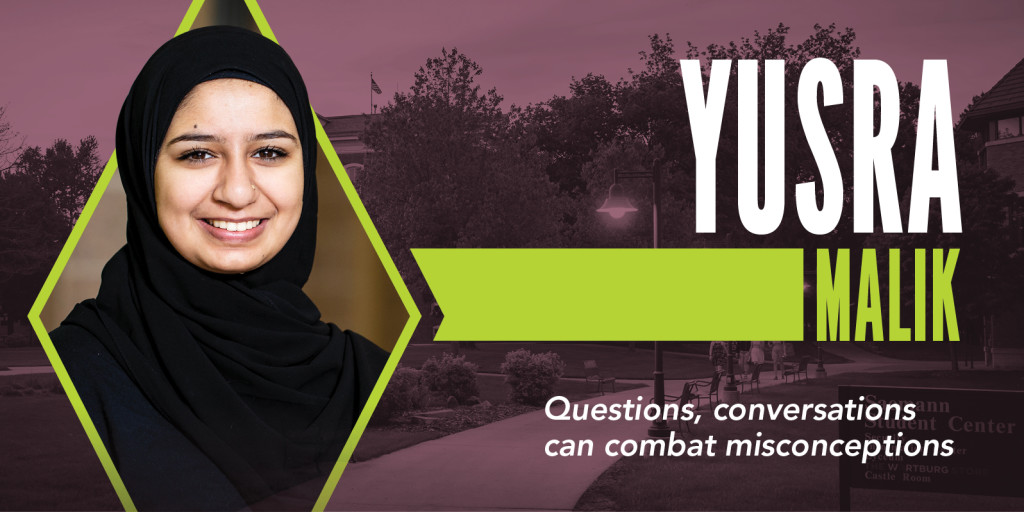Yusra: Questions, conversations can combat misconceptions
January 18, 2019

By Emily Christensen | Photo Julie Pagel Drewes ’90
When Yusra Malik ’21 was searching for colleges she was laser-focused on one thing: Which school would give her the best shot at success in the future? A classmate’s father piqued her interest in Wartburg when he called it a “doctor-making machine.” For Malik, who will graduate with a degree in neuroscience and Spanish, the small class sizes and personal attention seemed like the perfect combination.
She never considered that she might be the only woman on campus wearing a hijab, the head covering worn in public by some Muslim women.
“Wartburg and Waverly were a culture shock for me. Where I come from (she was born and raised in Plainfield, Ill.) I see a lot of other Muslims and women wearing the hijab,” she said. “It’s not the same here, but there is still a lot of diversity. And people are willing to ask questions and learn, even if they are nervous at first.
“There have been instances on campus where I could see people’s misconceptions or ignorance about the hijab, but there are also really good conversations with people who truly want to learn. It wouldn’t be fair to say there was one without the other. I’ve had people tell me I speak English well for an international student. Others truly want to know more about my background and why I wear the hijab.”
Malik has already found a way to ensure her voice is heard, including a spot on the college’s Diversity and Inclusion Council. Knowing that she represents not only herself but all students, Malik tries hard to ensure that all concerns she hears on campus — even those she may not agree with — are presented to the group. She also serves as the executive assistant for diversity on Student Senate and works with the orientation staff and as a Wartburg Ambassador, providing tours for prospective students.
Though Malik has never considered taking off her hijab while at Wartburg, she has been told that at least one other Muslim woman did remove hers while attending school here. Malik said this is a stage nearly all hijabi go through — hers was in high school — because there are days when they think it would be easier.
“This is why representation is so important. If I took off my hijab, I would be falling into what other people want me to do or expect me to be instead of what I think I should do,” she said. “As long as I am wearing my hijab, people will keep asking me questions, and I can clear up some of their misconceptions, like I am wearing it because I am oppressed. I hope that this will help others realize they too can be heard and have a place on this campus.”
